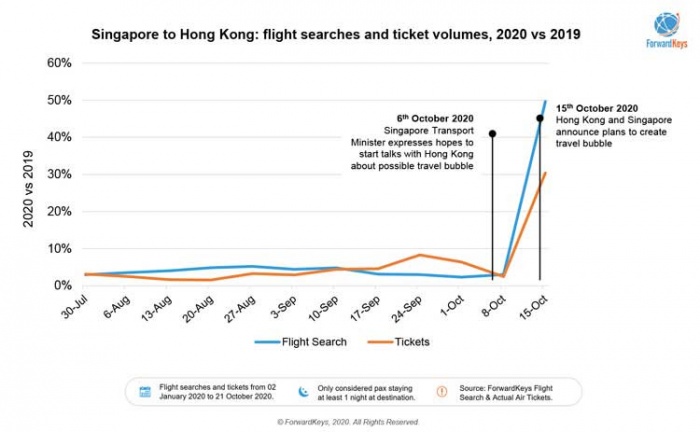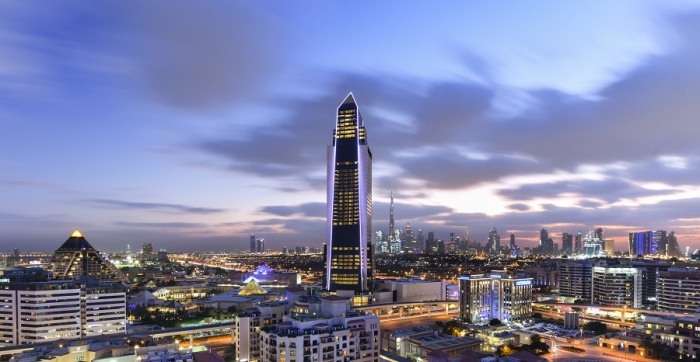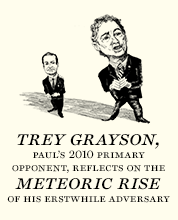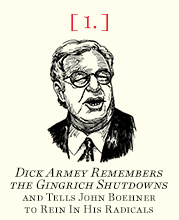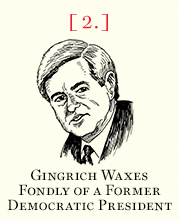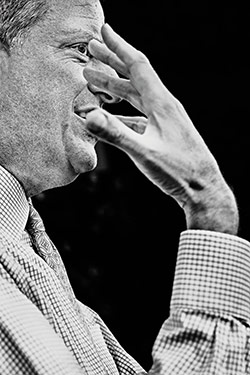Photo: Douglas Friedman/Trunk Archive
For four years, Hillary Rodham Clinton flew around the world as President Barack Obama’s secretary of State, while her husband, the former president Bill Clinton, lived a parallel life of speeches and conferences in other hemispheres. They communicated almost entirely by phone. They were seldom on the same continent, let alone in the same house.
But this year, all that has changed: For the first time in decades, neither one is in elected office, or running for one. Both are working in the family business, in the newly renamed nonprofit that once bore only Bill’s name but is now called the Bill, Hillary, and Chelsea Clinton Foundation, which will hold its annual conference in New York next week.
“We get to be at home together a lot more now than we used to in the last few years,” says Hillary Clinton. “We have a great time; we laugh at our dogs; we watch stupid movies; we take long walks; we go for a swim.
“You know,” she says, “just ordinary, everyday pleasures.”
In the world of the Clintons, of course, what constitutes ordinary and everyday has never been either. So the question was inevitable: Given who he is, and who she is, does Bill, among their guffaws over the dogs and stupid movies, harangue her daily about running for president?
To this, Hillary Rodham Clinton lets loose one of her loud, head-tilted-back laughs. “I don’t think even he is, you know, focused on that right now,” she says. “Right now, we’re trying to just have the best time we can have doin’ what we’re doin’. ”
There’s a weightlessness about Hillary Clinton these days. She’s in midair, launched from the State Department toward … what? For the first time since 1992, unencumbered by the demands of a national political campaign or public office, she is saddled only with expectations about what she’s going to do next. And she is clearly enjoying it.
“It feels great,” she says, “because I have been on this high wire for twenty years, and I was really yearning to just have more control over my time and my life, spend a lot of that time with my family and my friends, do things that I find relaxing and enjoyable, and return to the work that I had done for most of my life.”
Relaxing, for a Clinton, especially one who, should she decide to run, is the presumptive Democratic nominee for president in 2016, does not seem exactly restful. The day before we speak, she was awarded the Liberty Medal by the National Constitution Center in Philadelphia—presented by Jeb Bush, another politician weighted with dynastic expectations and family intrigue, who took the opportunity to jest that both he and Clinton cared deeply about Americans—especially those in Iowa, New Hampshire, and South Carolina.
Afterward, Clinton stepped backstage, a red-white-and-blue ribbon around her neck pulled taut by a saucer-size gold medal. “It is really heavy,” she said, with that plain-home midwestern tone she deploys when she wants to not appear the heavy herself. In the room with her were some of her close advisers—Nick Merrill, a communications staffer and acolyte of Hillary’s suffering top aide, Huma Abedin; and Dan Schwerin, the 31-year-old speechwriter who wrote all the words she had spoken moments ago. Local policemen with whom Clinton had posed for photos milled about behind her.
Outside was the usual chorus accompanying a Clinton appearance, befitting her status as the most popular Democrat in America: news helicopters buzzing overhead and protesters amassed across the street who raised signs that read benghazi in bloodred paint and chanted antiwar slogans directly at her as she spoke at the outdoor lectern.
Though she was officially out of the government, it was not as if she could leave it, even if she wanted to. That week Clinton had met with Obama in the White House to discuss the ongoing Syria crisis, and now Obama was on TV that very evening announcing a diplomatic reprieve from a missile attack on Syria—a series of decisions that Clinton had lent her support to every step of the way. “I’ve been down this road with them,” she tells me the next day. “I know how challenging it is to ever get [the Russians] to a ‘yes’ that they actually execute on, but it can be done. I think we have to push hard.”
Clinton has taken a press hiatus since she left the State Department in January—“I’ve been successful at avoiding you people for many months now!” she says, laughing. She is tentative and careful, tiptoeing into every question, keenly aware that the lines she speaks will be read between. In our interview, she emphasizes her “personal friendship” with Obama, with whom she had developed a kind of bond of pragmatism and respect—one based on shared goals, both political and strategic. “I feel comfortable raising issues with him,” she says. “I had a very positive set of interactions, even when I disagreed, which obviously occurred, because obviously I have my own opinions, my own views.”
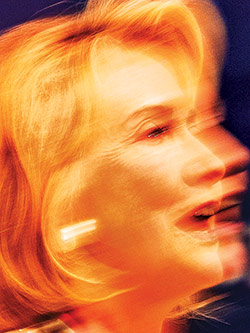
The killing of bin Laden, she says, was a bonding experience. Obama’s Cabinet had been split on whether to attempt the mission, but Clinton backed it and sweated out the decision with the commander-in-chief. “I’ve seen the president in a lot of intense and difficult settings,” she says, “and I’ve watched him make hard decisions. Obviously, talking to you on September 11 as we are, the bin Laden decision-making process is certainly at the forefront of my mind.”
The statement cuts two ways—praise for her president and evidence of her deep experience in and around the Oval Office—including the most successful military endeavor of the Obama presidency. As a Cabinet member, she says, “I’ve had a unique, close, and personal front-row seat. And I think these last four years have certainly deepened and broadened my understanding of the challenges and the opportunities that we face in the world today.”
Political campaigns are built of personal narratives—and it works much better if the stories are true. The current arc of Hillary’s story is one of transformation. Being secretary of State was more than a job. Her closest aides describe the experience as a kind of cleansing event, drawing a sharp line between the present and her multiple pasts—as First Lady, later as the Democratic front-runner in 2008, derailed by the transformative campaign of Barack Obama but also by a dysfunctional staff, the campaign-trail intrusions of her husband, and the inherent weaknesses of the fractious, bickering American institution that has become known as Clintonworld.
At State, she was the head of a smoothly running 70,000-person institution, and fully her own woman, whose marriage to a former president was, when it was mentioned, purely an asset. And now that she’s left State, Clintonworld is being refashioned along new lines, rationalized and harmonized. The signal event of this is the refurbishing of the Clinton Foundation, formerly Bill’s province, to accommodate all three Clintons, with Chelsea, newly elevated, playing a leading role. The move has ruffled certain Clintonworld feathers—a front-page article in the New York Times about the financial travails of the foundation as managed by Bill Clinton brought sharp pushback—but most of those close to the Clintons acknowledge that to succeed in the coming years, Hillary will have to absorb the lessons of 2008. Currently, it’s a topline talking point among her closest aides.
“She doesn’t repeat her mistakes,” says Melanne Verveer, an aide to the First Lady who then served in the State Department as Hillary’s ambassador-at-large for global women’s issues. “She really learns from her mistakes. It’s like, you want to grow a best practice and then always operate on that. She analyzes, ‘What went wrong here?’ ”
Of course, if Hillary’s future were to be an author, or a pundit, or a retiree, learning from mistakes wouldn’t be an issue. But other outcomes, where executive talents are prized, seem more likely. I ask Clinton the question that trails her like a thought bubble: Does she wrestle with running for president?
“I do,” she says, “but I’m both pragmatic and realistic. I think I have a pretty good idea of the political and governmental challenges that are facing our leaders, and I’ll do whatever I can from whatever position I find myself in to advocate for the values and the policies I think are right for the country. I will just continue to weigh what the factors are that would influence me making a decision one way or the other.”
Clintonworld, however, speaks with many voices—albeit many of them not for attribution. Some of her close confidants, including many people with whom her own staff put me in touch, are far less circumspect than she is. “She’s running, but she doesn’t know it yet,” one such person put it to me. “It’s just like a force of history. It’s inexorable, it’s gravitational. I think she actually believes she has more say in it than she actually does.”
And a longtime friend concurs. “She’s doing a very Clintonian thing. In her mind, she’s running for it, and she’s also convinced herself she hasn’t made up her mind. She’s going to run for president. It’s a foregone conclusion.”
When president-elect Barack Obama asked Clinton to be secretary of State, they had a series of private conversations about her role for the next four years. What would the job entail? How much power would she have? How would it be managed?
Or to restate the questions as they were understood by everyone involved in the negotiation: What would Hillary Clinton get in return for supporting Obama after the brutal primary and helping him defeat John McCain?
Though she had ended her losing campaign on a triumphal note, gracefully accepting the role of secretary of State and agreeing to be a trouble-free team player in Obama’s Cabinet, the 2008 primary loss left deep wounds to her core staff—at least among those members who had not been excommunicated. They would discuss what happened during long trips to Asia and Europe, sounding like post-traumatic-stress victims. “The experience was very searing for them, and they would go through it with great detail,” says a former State Department colleague.
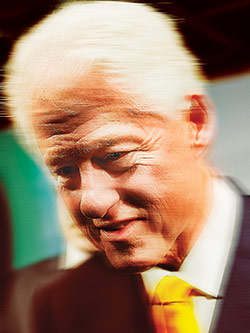
The problems of that campaign were crucial to how Clinton would decide to lead the State Department. In accepting the State job, Clinton insisted on hiring her own staff. In addition to her top aides, Huma Abedin and Philippe Reines, she enlisted stalwarts of campaigns and administrations past: Maggie Williams, Cheryl Mills, and Verveer, who have been with her since her days in Bill Clinton’s White House. Among Hillary’s inner circle, this is viewed as a returning lineup of all-stars who were iced out of her campaign by a five-person team led by Patti Solis-Doyle, a group who in their telling became the agents of the campaign’s troubles. “They’re the A-team,” says a top aide. “They weren’t the B-team that got elevated. They were the A-team that got deposed by [Solis-Doyle].”
The 2008 campaign was seen by many as an echo chamber, closed off from the best advice, and the lesson for Clinton was clear: “The takeaway is, ‘Don’t only listen to five people,’ ” says the aide.
When she arrived, Clinton did a kind of institutional listening tour at the State Department. “She felt like she was too closed off from what was happening across the expanse of the [2008] campaign,” says a close aide at the State Department, “and that became a hallmark with the leadership in the State Department, and it served her incredibly well.”
To keep things operating smoothly, she hired Tom Nides, the COO of Morgan Stanley, who’d contributed heavily to Clinton’s past campaigns. Even Nides was wary of the Clinton drama he might be stepping into. “I had heard all these stories about the Clinton world and what all that meant and ‘Did you really want to get wrapped up in that?’ ” he says. But he reports that “all of the stuff did not exist at the State Department for the last four years.
“The relationship between the State Department and the White House and the State Department and the Defense Department was probably the best it’s ever been in 50 years,” he adds. “That starts from the top. No drama. And that was started by her.”
Among Hillary Clinton’s greatest hits at State were the new focus on Asia, pushing for the overthrow of Libyan dictator Muammar Qaddafi, and building a coalition for strong sanctions against Iran. But she also saw the job as a kind of reformatting of the State Department itself to prepare for the longer-run issues. “I’d been told that it was a choice that had to be made: You could either do what had to be done around the world, or you could organize and focus the work that was done inside State and the Agency for International Development, but I rejected that,” says Clinton. “I thought it was essential that as we restore America’s standing in the world and strengthen our global leadership again, we needed what I took to calling ‘smart power’ to elevate American diplomacy and development and reposition them for the 21st century … That meant that we had to take a hard look at how both State and A.I.D. operated. I did work to increase their funding after a very difficult period when they were political footballs to some extent and they didn’t have the resources to do what was demanded of them.”
Clinton’s State team argues that Clinton was a great stateswoman, her ambition to touch down in as many countries as possible a meter of how much repair work she did to the nation’s image abroad. Along the way, she embraced with good humor a parody Tumblr account, Texts From Hillary, that featured a picture of her in the iconic sunglasses looking cool and queenly. “She insisted on having a personality,” says Jake Sullivan, her former deputy chief of staff and now the national-security adviser to Vice-President Joe Biden. “And on stating her opinion.”
For foreign-policy critics, some of this could look like wheel spinning. The major critique was that she didn’t take on any big issues, like brokering peace between Israel and the Palestinians, or negotiating the nuclear disarmament of North Korea. And the suspicion was that she didn’t want to be associated with any big failures as she prepared for 2016. She was, after all, under the tight grip of the Obama White House, which directed major foreign-policy decisions from the Oval Office.
“Whatever one says about how [Secretary of State] John Kerry is doing,” says the Washington Post’s Glenn Kessler, “he has nothing left to lose. You can see he takes risks. He’s plowing into the Middle East stuff when people are saying this isn’t going to get you anywhere. Hillary never would have done any of this stuff.”

Her former staffers argue that she managed a host of important, if underrecognized, global flare-ups along the way, from freeing a dissident in China to brokering the easing of sanctions against Burma. “She helped avert a second war in Gaza by going out and pulling off that cease-fire,” recalls Sullivan of the deal she hashed out between Israel and Hamas after a week of fighting, “which holds to this day. And you don’t get a lot of credit for preventing something. Those are things that you aren’t going to measure how successful they are for another ten or twenty years.”
At the same time, Hillary used her tenure at State for a more intimate purpose: to shift the balance of power in the most celebrated political marriage in American history. Bill Clinton was an overwhelming force in Hillary’s 2008 campaign, instrumental in vouching for Mark Penn, the strategist whose idea it was for Hillary to cling to her war vote on Iraq and to sell her as an iron-sided insider whose experience outweighed the need to project mere humanity. Bill also freelanced his own negative attacks, some of which backfired. Because his staff was not coordinating with Hillary’s, her staff came to regard him as a wild card who couldn’t be managed.
But not in the State Department. “Not a presence,” says a close State aide. “And I don’t mean that just literally. But not someone who was built into the system in any way. He had a very minimal presence in her time at the State Department.
“It’s kind of jarring when she says ‘Bill,’ ” this person adds, recalling meetings with Hillary Clinton. “Well, who’s Bill? And then you realize that she’s talking about her husband. It happened so infrequently that you were kind of like, Oh, the president.”
Part of it, of course, was logistical. Though they spoke frequently by phone, Bill and Hillary were rarely in the same country. By chance, their paths crossed in Bogotá, where they had dinner together—then, owing to their massive entourages, returned to their respective hotels. “Love conquers all except logistics,” says an aide.
“I could probably count on one hand the times she came to a meeting and either invoked his name or suggested something that Bill had said,” says Nides. “I probably did it more about my wife telling me what to do.”
Hillary might have left the State Department unsullied by controversy if not for the Benghazi episode, in which the ambassador to Libya, Chris Stevens, and three other consulate staffers were killed in an attack on the U.S. consulate. The NATO intervention in Libya was the most important foreign intervention of her tenure, and a seemingly successful one, but the lack of security in Benghazi and the confusion over how the incident occurred set off a heated Republican attack on Clinton’s handling of the disaster, and she was roasted on the cable-news spit for weeks. In January, she took responsibility for the deaths of the four Americans before Congress—while also questioning her inquisition, snapping at a Republican congressman, “What difference at this point does it make? It is our job to figure out what happened and do everything we can to prevent it from ever happening again, Senator.”
Benghazi will be the go-to bludgeon for Republicans if and when Clinton tries using her experience at State to run for president. It is a reminder that Clinton, despite the cool, centrist façade she has developed in the past four years, is only a misstep away from being a target of partisan rage once again.
Regardless of the facts, Republicans are liable to use Benghazi as a wedge to pry back her stately exterior, goading her into an outburst, once again revealing the polarizing figure who saw vast right-wing conspiracies and tried ginning up government health care against the political tides of Newt Gingrich.
When asked for her prescription for partisan gridlock, Clinton sees an opportunity not unlike what Obama saw in 2008. “People are stereotypes, they are caricaturized,” says Clinton. “It comes from both sides of the political aisle, it comes from the press. It’s all about conflict, it’s all about personality, and there are huge stakes in the policies that are being debated, and I think there’s a hunger amongst a very significant, maybe even a critical mass of Americans, clustered on the left, right, and center, to have an adult conversation about how we’re going to solve these problems … but it’s not for the fainthearted.” For now, Hillary’s strategy is to sail above these conflicts, mostly by saying nothing to inflame them. “I have a lot of reason to believe, as we saw in the 2012 election, most Americans don’t agree with the extremists on any side of an issue,” says Clinton, “but there needs to continue to be an effort to find common ground, or even take it to higher ground on behalf of the future.”
At the Sheraton Ballroom in Chicago last spring, Bill Clinton appeared before an eager crowd of Clinton groupies at the Clinton Global Initiative America, a special conference focused on domestic issues and set in Hillary’s hometown. Onstage, the former president looked older than in the past—thinner, stooped, more subdued, his hands trembling while he held his notes at the podium. Haloed in blue light, he spoke about the “still embattled American Dream” and then introduced his wife as his new partner in the foundation, the woman who “taught me everything I know about NGOs.”
Her appearance made for a stark contrast. When she emerged from behind the curtain, she appeared much more youthful—smiling, upright, beaming in a turquoise pantsuit; she received huge applause and a standing ovation that dwarfed the response to Bill.
On her first major public stage since leaving the State Department, Hillary told the crowd that the foundation will be a “full partnership between the three of us,” including her daughter, Chelsea. But this was clearly Hillary Clinton’s show. That week, she had launched her Twitter account, complete with a tongue-in-cheek description of her as a “glass ceiling cracker,” her future “TBD.” Clearly, her foundation work, as important as it is to her, wasn’t everything. And Chicago was a perfect site for the start of this new chapter. It was where she was from, the launchpad for her career in politics and early-childhood education and women’s empowerment, what she called the “great unfinished business of this century.” “When women participate in politics,” she said, “it ripples out to the entire society … Women are the world’s most underused resource.”
If you wanted to read her speech as an opening salvo for a 2016 run for the presidency, it wasn’t hard to do as she talked about all that she’d learned as she traveled the globe. Whatever country or situation they found themselves in, “what people wanted was a good job.”
The rechristening of the foundation marked the first time the Clintons had come under the same institutional roof since the nineties. For Hillary, it made sense, because she didn’t have to compete with her husband for donors at her own foundation. It would also allow her to warm up donors for future initiatives—like, just for instance, a 2016 campaign. Two days later, the family would appear together onstage, a picture-perfect photo op of what Bill Clinton called “our little family.”
The Clinton Global Initiative, in addition to its work combating poverty and aids, is a kind of unofficial Clinton-alumni reunion, with friends and donors dating back to the early years in Arkansas. Sprinkled around the ballroom in Chicago were the old hands, from Bruce Lindsey, the former deputy White House counsel and CEO of the foundation, to newer faces like J. B. Pritzker, the Chicago hotel scion who was national co-chair of Hillary’s 2008 campaign and was now raising $20 million for an early-childhood-education initiative.
The Clinton network has always been both an asset and a burden. Terry McAuliffe, the longtime Clinton ally now running for governor of Virginia, has raised millions for the Clintons at every juncture of their careers. Then again, he’s Terry McAuliffe, the guy who left his weeping wife and newborn child in the car while he collected $1 million at a fund-raiser, then wrote about it in a memoir. “You can’t change who these people are,” says one former Hillary adviser. “It’s like any other trade. You’ve got the good, and there’s a lot of good. And you’ve got the noise.”
To harness some of the noise—what some Clinton people called “the energy”—a faction has converged around the Ready for Hillary super-PAC started by a former 2008 campaign aide named Adam Parkhomenko. Launched early this year, it has appeared to many observers to be an informal satellite of Hillary’s larger designs for the White House, but her aides say it’s a rogue operation of questionable benefit. “There is nothing they are doing that couldn’t have waited a year,” says one. “Not a single fucking thing.”
Regardless, Clinton veterans like former campaign strategist James Carville have come out supporting the super-PAC, as has former White House political director Craig Smith, Bill’s old Arkansas pal. Supporters argue that the super-PAC has Hillary’s tacit approval, especially given the involvement of Susie Tompkins Buell, a prominent Democratic donor who is among her oldest and closest friends. “It offers supporters the all-important link to click on, plus places to convene in both the digital and physical worlds,” says Tracy Sefl, an adviser to the super-PAC. “And although some perhaps just can’t quite believe it, Ready for Hillary’s name really does convey the totality of its purpose.”
One supporter of the super-PAC, who didn’t want to be identified, acknowledges that “there’s a danger there of her again becoming the front-runner. And, too, the existence of it raises her profile and puts more pressure on her to make a decision earlier than she might otherwise want to make.”
On some level, the network is almost impossible to control—Clintonworld is bigger than just the Clintons. “People do things in their name, or say they just talked to Hillary or to Bill, and the next thing you know, they’re doing something stupid,” says a former aide of Hillary’s whose interview she sanctioned. “You take the good with the bad. Hopefully, the good outweighs the bad.”
The biggest question among Hillary’s circle concerns Huma Abedin, currently chief of Hillary’s “transition office” and formerly her deputy chief of staff in the State Department. Abedin began as an intern for the First Lady in 1996, when she was 20 years old, and is, of course, married to former congressman and mayoral candidate Anthony Weiner, of sexting infamy.
In the midst of her husband’s scandal, Abedin stepped down from her full-time job for a consulting contract and moved back to New York to take work with Teneo Holdings, a consulting firm and investment bank run by Bill Clinton’s longtime consigliere, Doug Band. This gave Hillary cover while also keeping Abedin plugged in. “It’s business as usual,” says a Clinton insider. “Keep your circle of advisers small, and then you structure things in a way that makes it economically possible for your close advisers to sustain themselves.”
But business as usual can be a giant target for enemies: Abedin has since become the subject of an inquiry, by a Republican congressman, into her dual consulting roles, looking for potential conflicts of interest while she served in a sensitive role in the administration. Then came a second episode of Weiner’s sexting this summer, blindsiding the Clintons, obliterating Weiner’s mayoral ambitions, and greatly complicating Abedin’s future with the Clintons. With Weiner’s ignominious loss and parting bird-flip, “Huma has a choice to make,” says a close associate of hers. “Does she go with Anthony, or does she go with Hillary?”
Leaving the Clinton bubble is almost unimaginable for those who’ve grown up in it. According to a person familiar with the conversations, Abedin has struggled to reconcile her marriage to Weiner with her role as Clinton’s top aide, traumatized by the prospect of leaving her boss’s inner circle.
In a sense, the Weiner scandal is a ghost of Clintonworld past, summoning sordid images of unruly appetites and bimbo eruptions, exactly the sort of thing that needs to be walled off and excised in a 2016 campaign. Former advisers from State say any future campaign will take a page from Clinton’s relatively peaceful past four years. “In contrast with reports of disunity in the 2008 campaign,” says Kurt Campbell, “the State Department was operated with a high degree of harmony and collegiality.”
The secret to realigning Clintonworld has been there all along. Since she received her master’s from Oxford in 2003, Chelsea Clinton had tried out different career paths, first in business consulting at McKinsey & Co., then at a hedge fund run by donors to her parents, and finally as a correspondent on NBC, with a few university postings sprinkled in. Chelsea has grown up in the Clinton bubble, the princess of Clintonworld, and getting outside of it has sometimes been difficult. She tried her hand at developing her “brand” on TV, but then, two years ago, stepped in and took over her father’s foundation, a return to the fold that portended a lot of changes. She became vice-chairman of the board. The foundation hired white-shoe law firm Simpson Thacher & Bartlett to perform an audit and review of the foundation’s finances and operations. And this summer, she installed a friend from McKinsey, Eric Braverman, as CEO.
Chelsea’s arrival was a clear if unspoken critique of Doug Band, who’d long been Bill Clinton’s gatekeeper in his post-presidential life. In Chelsea’s view, the foundation started by Band had become sprawling and inefficient, threatened by unchecked spending and conflicts of interest, an extension of her father’s woolly style. In 2012, a New York Post story suggested impropriety in Band’s dual role, forcing Clinton to put a bit of distance between himself and Teneo.
In a report this summer, the Times claimed the foundation operated at a deficit and was vulnerable to conflicts of interest related to Teneo Holdings—which telegraphed the message that there was a new sheriff. Chelsea, says a Hillary loyalist, “has taken a chain saw to that organization. She has not allowed these old bubbas to deal with this.”
Naturally, some of Bill Clinton’s staff at the foundation were unhappy with Chelsea’s arrival, especially the decision to include Hillary and Chelsea in the name of it. In a move that suggested intrafamily conflict, Bill Clinton stepped out to defend his comrades, insisting that Bruce Lindsey, the former CEO, who had suffered a stroke in 2011, would continue to be “intimately involved” in the foundation and that he couldn’t have accomplished “half of what I have in my post-presidency without Doug Band.”
Hillary Clinton says her daughter’s entrance into the foundation was an organic extension of everything the Clintons have ever done. “It sort of is in the DNA, I don’t think there’s any doubt about that,” she says. “She’s an incredibly able—obviously I’m biased—but extremely well-organized, results-oriented person, so rather than joining a lot of other groups, on which she could pursue her interests, she thought, I want to be part of continuing to build something I have worked on off and on over the years, and I really believe in it. I was thrilled to hear that.
“She comes by it naturally, don’t you think?” she adds cheerfully.
Chelsea is now the chief Bill Clinton gatekeeper. At HBO, where Martin Scorsese is making a documentary about him, Chelsea has been involved from the start and is weighing in on the production.
As the various staffs of the three Clintons come under one roof, in a headquarters in the Time-Life Building in midtown Manhattan, there are dangers of internecine conflict. “It’s all people jockeying for position,” says a person with close ties to the foundation. “This is an operation that runs on proximity to people. Now there are three people. How does all that work?”
For Bill Clinton to acknowledge flaws in his institute and relinquish control to his daughter and wife was a new twist in the family relationship. People in both Bill’s and Hillary’s camp are quick to emphasize that Bill Clinton is still the lifeblood of the foundation and its social mission. Chelsea’s arrival is ultimately about preserving the foundation for the long term as he gets older and winds down some of his activities. But the subtext of the cleanup operation is no mystery among Clinton people. Bill’s loosey-goosey world had to be straightened out if Hillary was going to run for president. “She doesn’t operate that way,” says one of her former State Department advisers. “I mean, she has all sorts of creative ideas, but that’s not how she operates. She is much more systematic.”
As part of the shifting landscape in Clintonworld, Bill Clinton got a new chief of staff, Tina Flournoy, one of the group of African-American women—including Maggie Williams and Donna Brazile—who have been close advisers to the Clintons over the years. A former policy aide at the American Federation of Teachers, Flournoy’s arrival last January was viewed by insiders as Hillary’s planting a sentinel at the office of her husband.
Bill Clinton is also a legendary politician, a brilliant tactician who won two presidential elections and reigned over the most prosperous years in America in recent memory. Some make the argument that he single-handedly won Obama reelection with his extraordinary takedown of Mitt Romney at the Democratic National Convention last year. The trick, say Clinton advocates, is to manage him effectively on behalf of his wife. “To the discredit of whoever is running a campaign, if that happens and they don’t use Bill Clinton—use his strategy, use his thoughts, take his dumb ideas and his great ideas and make sure they’re used effectively—they’re a moron,” says a person close to Hillary Clinton.
Perhaps this is where Chelsea comes in. After years of expectation, she has emerged from her chrysalis, a new power center, her father’s keeper and, maybe for Hillary … a shadow campaign manager.
In Clintonworld, wheels are turning, but no one wants them to turn too fast. Last spring, in a panel discussion at the Peterson Institute, Bill Clinton blew up, telling people to stop speculating on her presidential aspirations. It was too soon. Says Nides, “If you have every person you know say to you the following: ‘You should run for president, Madam Secretary, I love you, Madam Secretary, you’d be a great president, Madam Secretary,’ she nods. And she understands the context of that.”
Hillary is well aware of these dynamics. “I’m not in any hurry,” she tells me. “I think it’s a serious decision, not to be made lightly, but it’s also not one that has to be made soon.
“This election is more than three years away, and I just don’t think it’s good for the country,” she says. “It’s like when you meet somebody at a party and they look over your shoulder to see who else is there, and you want to talk to them about something that’s really important; in fact, maybe you came to the party to talk to that particular person, and they just want to know what’s next,” she says. “I feel like that’s our political process right now. I just don’t think it is good.”
So all the activity and planning and obsessive calculation that go into a presidential campaign take place behind a pleasant midwestern smile. Her time at State indeed transformed her—as did her 2008 campaign, and her time as a senator, and as First Lady, and on and on. Now she contains multitudes, a million contradictions. She’s a polarizing liberal with lots of Republican friends, the coolest of customers constantly at the center of swirling drama. She’s hung up on a decision over whether to run for an office she (not to mention her husband) has coveted for her entire adult life. She’s a Clinton. And what a candidate she’d make in 2016. But if that’s where she’s going, she’s not saying. “I’m somebody who gets up every day and says, ‘What am I going to do today, and how am I going to do it?’ ” she says. “I think it moves me toward some outcome I’m hoping for and also has some, you know, some joy attached to it. And I think it would be great if everybody else [took the same approach], for the foreseeable future.”
Of Hillary’s dreams, that one seems unlikely to come true.



